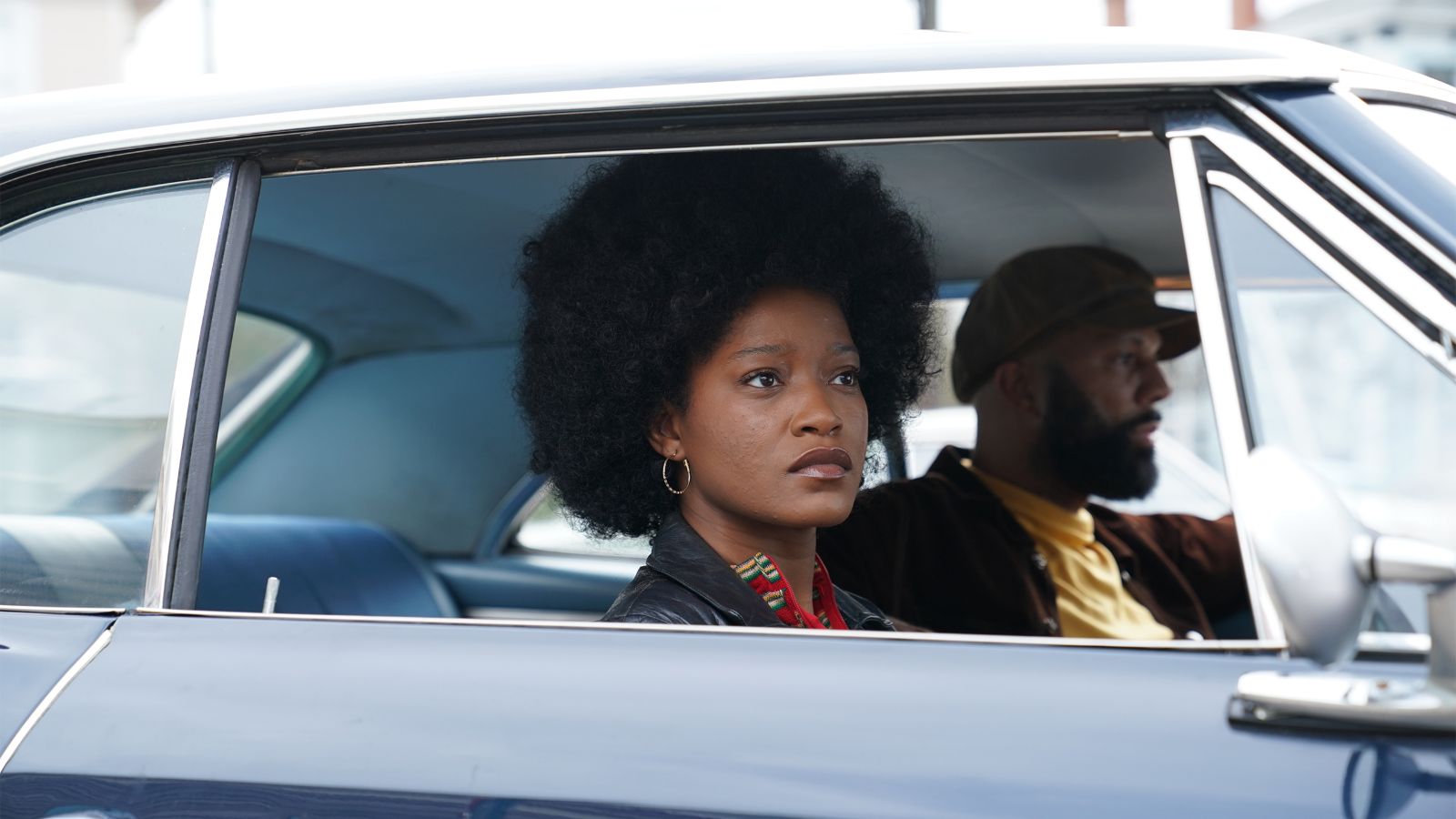Alice, the debut feature of writer-director Krystin Ver Linden, has a major pacing problem. Based on true accounts, it concerns Alice (Keke Palmer), a woman enslaved on a Georgia plantation who one day escapes and finds she’s actually living in 1973, more than 100 years after the Emancipation Proclamation. It’s a startling discovery, one that unsurprisingly drew more than a few comparisons to 2020’s Antebellum, a maligned horror-tinged feature with a similar setup.
While the proximity of a quite similar film has led some to besmirch Alice, the comparison actually does Ver Linden’s film a few favors. Antebellum’s use of these very real horrors as a Village-style gotcha twist cheapens the pain that film is poking at for mere shock value. Ver Linden doesn’t have any interest in playing the same kind of game with her audience. While Alice‘s first act puts in Mystery Box clues to let us know something on this 19th-century style plantation isn’t quite what it seems––tales of a man who fell from the sky and can create fire with his hands (i.e. a lighter)––Ver Linden doesn’t wait until the last minute to pull the rug from under us.
Still she waits far too long, and this is where that pacing struggle rears its head most. Alice discovering she’s living in 1973 is the basic premise of the film, the one given to us in every simple logline, and surely a reveal that will be shown in every piece of marketing when the film receives its general release. Why then does it wait nearly half its runtime to make that reveal to Alice? Dragging the main character and viewer through one tortuous scene of plantation violence after the next, we all know what’s going to come, and we wait impatiently to get there so we can see the story progress—for Alice to become more of an actualized character than she’s allowed to be on the plantation.
This speaks to a major faults with Alice: these characters never feel like more than the dressing of their parts. Despite spending almost an hour on the plantation, we don’t get much understanding of who Alice is beyond the basic idea of her being a slave who yearns for more, and Ver Linden largely abandons every other character in her orbit the moment she is propelled into the modern day with a chance encounter with truck driver and disillusioned Black liberation fighter Frank (Common). The cinematic language suggests Alice gets to know Frank, but we never get that sense—he remains obfuscated through a mixture of weak writing and anonymous acting. Palmer, conversely, is putting the entire film on her shoulders and doing her best to make up for its lacking elements elsewhere––a fight no one would be able to win.
Partly as a result of spending so much time on the plantation, events seem to fly by at a fevered clip once Alice has the world opened to her. We rush through the realization of her situation to the point where it’s a bit tough to tell if Alice (or the audience) is even aware of what has happened, and then quickly her initial mission of revenge against the plantation owner (Jonny Lee Miller) who mistreated her becomes a quest for the liberation of the fellow people still enslaved there. As Alice discovers the wonders of Pam Grier and attends a screening of Coffy, Ver Linden shifts Alice‘s final act into a Blaxploitation-inspired genre film, a bizarre tonal clash from the despair of its first half. The desire to reclaim this sort of narrative for a liberational feature is interesting––an idea used a decade ago in the revisionist history playground of Django Unchained, a film made during the seven years in which Ver Linden worked assisting Quentin Tarantino.
This is a jarring shift in Alice, one that pushes up against the odd structural decisions that leave the film feeling like a few good ideas that didn’t know the exact way to be expressed on page. That said, certain elements catch life in the second half’s Blaxploitation course, almost making one hope to see Ver Linden direct a full-on Blaxploitation film of her own one day. Though Alice is bringing up a part of American history sadly under-discussed, and not present anywhere in high school history textbooks the way it should be, it struggles to find a voice, never able to capture the right rhythm to bring itself to life.
Alice premiered at the 2022 Sundance Film Festival.

